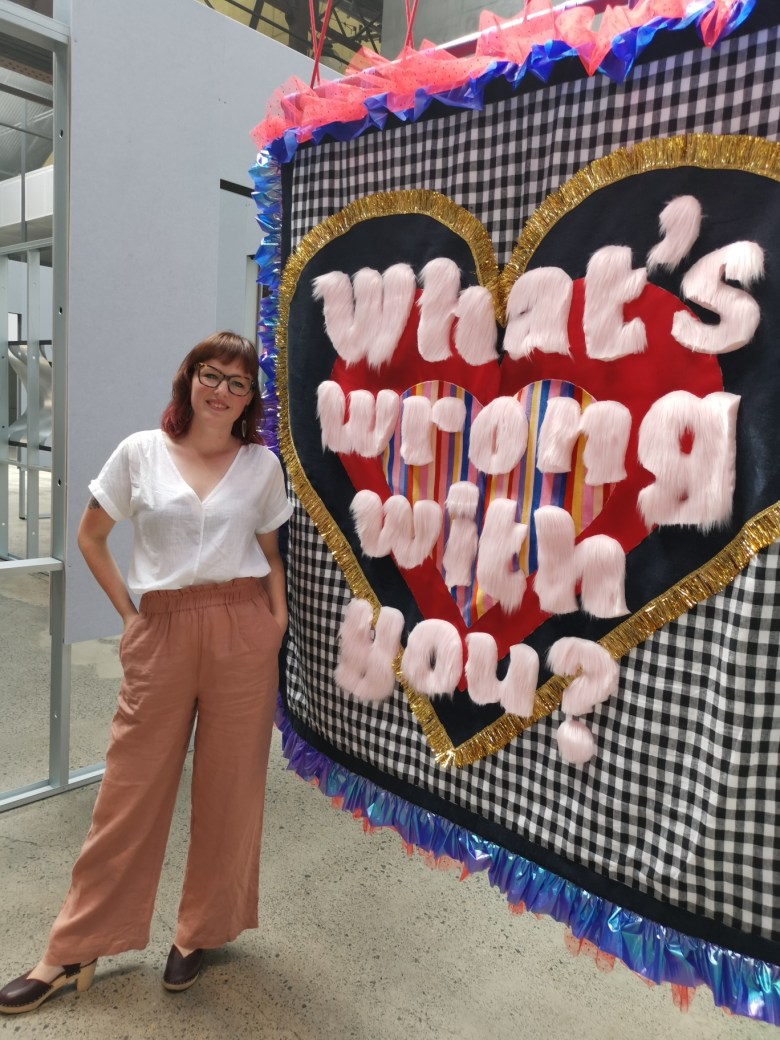Studio A, part of a major exhibition at Carriageworks, tackled the barriers faced by artists living with intellectual disability in accessing conventional educational and professional opportunities needed to become a successful artist. Presenting a new commission was Amy Claire Mills who spoke to Kymberly Martin at the opening. Her work Burden of Proof is about ableism, the discrimination or prejudice against people who have disability, especially those with invisible disabilities.
She described her tactile and vibrant quilt display, that was shown in two parts, as a “conversation piece” which is why the quilts are facing each other. One reads: What’s wrong with you? and the other: Are you sure it’s not in your head? These frequently asked questions, that come from her various encounters, are sewn into the quilts. (See image).
Mills, who has invisible disabilities including Cystic fibrosis, diabetes and has had a liver transplant, said when she chooses to disclose her disability the response from people often is it all in your head? “Invasive questions that really question my disability.”
In addition to her textile work Mills also works in retail because “nearly every artist needs a back-up.” Her job is at Reverse Garbage, in Marrickville, Sydney that takes in industrial waste. “Some of my textile pieces come from here with recycled materials as artists do think about the impact their work has on the environment.”
This was her first showing at Carriageworks and another aspect of her ableist narrative was also on display at Firstdraft, an exhibition offering so-called ‘cures’ for people with disability, that also posed another question: Have you Tried?’ Sewn onto 45 cushions carrying different cure suggestions from yoga and positive affirmation to bone grafts – “Just some of the bizarre things people say to those with disability that they think will fix them,” Mills said.
“It is not a conversation for people with disability it is really opening up as to how we communicate. I sell my ‘cure’ cushions in the hope it will encourage people to think about ableism that will in turn dictate our interactions with people with disability, hopefully into a new vocabulary of softness, empathy and care.”
Mills studied Performance Arts at university that encouraged her to take the path into textiles. “Performance Arts is very high energy, but I reached a point where I wanted to do something I could practice at home which is why I moved into textiles,” she said.
For more details visit: www.amyclairemills.com

